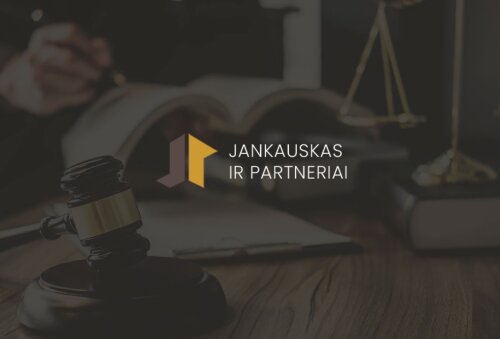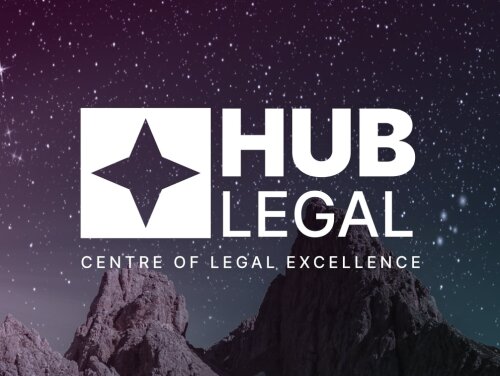Best Energy, Environment & ESG Lawyers in Republic of Lithuania
Share your needs with us, get contacted by law firms.
Free. Takes 2 min.
Or refine your search by selecting a city:
List of the best lawyers in Republic of Lithuania
About Energy, Environment & ESG Law in Republic of Lithuania
Lithuania’s legal framework for energy, environmental protection, and ESG (Environmental, Social, Governance) matters is comprehensive and constantly evolving. As part of the European Union, Lithuania aligns its legislation with EU directives and international agreements. The fields of energy and environment are tightly connected in Lithuania due to the country’s commitment to sustainable development, energy independence, climate change mitigation, and efficient resource use. ESG considerations have also become increasingly important for businesses and investors, influenced by both national laws and EU policies. Legal requirements focus not only on compliance, but also on supporting innovation, renewable energy, transparency, and corporate responsibility.
Why You May Need a Lawyer
Individuals, business owners, and organizations may need legal advice in the field of energy, environment, and ESG for a range of reasons. Some of the most common situations include:
- Navigating complex permitting processes for new energy projects or industrial developments
- Ensuring compliance with environmental standards, such as waste management or air and water quality laws
- Negotiating and drafting contracts for renewable energy projects, such as power purchase agreements or grid connection agreements
- Resolving disputes involving environmental impact, land use, or energy supply
- Understanding and implementing ESG strategies to meet investor or regulatory requirements
- Dealing with inspections or administrative actions from environmental or energy regulators
- Participating in emissions trading schemes or renewable energy incentive programs
- Managing environmental liability and remediation of contaminated sites
- Adapting to the changing legal requirements as EU and national laws are updated
Given the sophistication of the legal requirements, having a lawyer with expertise in these areas can help ensure compliance, avoid costly disputes, and seize new business opportunities.
Local Laws Overview
Several categories of laws are particularly relevant in Lithuania for energy, environment, and ESG matters:
- Energy Law: Lithuania’s Energy Law, Renewable Energy Law, and related regulations govern energy generation, transmission, and supply. Special attention is placed on ensuring energy security, expanding renewables (especially wind and solar), and meeting EU decarbonization targets. Utility regulation, grid access, and consumer protection are facilitated by the National Energy Regulatory Council.
- Environmental Law: The Law on Environmental Protection sets the main principles for pollution control, environmental impact assessments (EIA), protected areas, and natural resource use. Various supporting regulations address waste management, emissions, climate action, and environmental liability for contamination.
- ESG Legislation: ESG requirements are increasingly embedded in corporate law and public procurement. Large companies and financial institutions may be subject to reporting or disclosure obligations under Lithuanian law and relevant EU directives, such as the Corporate Sustainability Reporting Directive (CSRD).
- Permitting and Approvals: Most energy and industrial projects require a range of governmental permits-including environmental permits, construction permits, and, in some cases, social impact assessments.
- International and EU Law: As an EU Member State, Lithuania follows a large number of EU regulations and directives related to energy efficiency, renewable energy, emissions trading (EU ETS), and access to justice in environmental matters.
Violations of these laws can result in administrative penalties or, in some cases, criminal liability. Legal requirements are often updated to reflect Lithuania’s ambitious energy and climate targets.
Frequently Asked Questions
What permits are needed to start a renewable energy project in Lithuania?
You will typically need land use approval, an environmental impact assessment where required, construction permits, and a grid connection agreement, among others. The process depends on the size and scope of the project.
Are there incentives for renewable energy investments?
Yes, Lithuania offers support for certain types of renewable energy investments, including participation in public auctions, feed-in tariffs, and other incentives in line with EU policies.
What is ESG reporting and who is required to do it in Lithuania?
ESG reporting involves disclosing environmental, social, and governance practices and impacts. Mandatory ESG reporting applies to certain large companies and financial institutions, especially those subject to EU corporate sustainability rules.
How does Lithuania manage industrial pollution?
Industrial operators must comply with permits setting concrete pollution limits. Regular inspections and reporting are required, and operators face penalties for violations.
What recourse do communities have regarding environmental impacts?
Communities can participate in public consultations during permitting stages and may challenge decisions or seek compensation if their rights are impacted by environmental harm.
How is energy efficiency promoted in Lithuania?
Lithuanian law implements EU-mandated energy efficiency programs, requiring audits for large energy users, promoting efficiency in buildings, and supporting public sector upgrades.
Are there rules for corporate climate strategies?
While not always mandatory, companies are increasingly expected to develop climate strategies in line with Lithuanian and EU emission reduction goals and to integrate them into ESG reporting.
What penalties exist for violating environmental or energy laws?
Penalties can range from administrative fines to remediation orders or, for severe cases, criminal charges against responsible individuals or entities.
How are disputes in energy or environmental projects resolved?
Disputes may be resolved through negotiation, administrative review, civil litigation, or, in certain cases, arbitration. Engaging a lawyer early can be crucial in protecting your interests.
Can foreign investors participate in Lithuania’s renewable energy sector?
Yes, Lithuania encourages foreign investment in renewable energy and applies the same regulatory standards to both local and foreign investors.
Additional Resources
The following resources and organizations are valuable for those seeking information or legal support regarding energy, environment, and ESG in Lithuania:
- National Energy Regulatory Council (Valstybine energetikos reguliavimo taryba) - Regulates the energy sector
- Ministry of Energy of the Republic of Lithuania (Energetikos ministerija) - Policy and strategy for energy topics
- Ministry of Environment of the Republic of Lithuania (Aplinkos ministerija) - Environmental regulation and permitting
- Environmental Protection Agency (Aplinkos apsaugos agentura) - Permits, monitoring, and assessments
- Lithuanian Renewable Energy Confederation - Industry group for renewable energy
- Lithuanian Bar Association (Lietuvos advokatu taryba) - Finding qualified legal professionals
Next Steps
If you require legal assistance in matters related to energy, environment, or ESG in Lithuania, consider the following steps:
- Gather all relevant documentation and information about your project or issue
- Identify what specific advice or services you need-such as permitting, compliance review, ESG reporting, or dispute resolution
- Consult with a qualified lawyer who specializes in energy, environmental, or ESG law in Lithuania
- Discuss your goals and challenges openly to get tailored solutions
- Work with your legal adviser to prepare required filings, negotiate with authorities, or respond to any investigations or disputes
- Stay updated on changes in Lithuanian and EU legal requirements that may affect your rights or obligations
Navigating these fields can be complex, but with the right guidance, you can protect your interests and ensure compliance with Lithuanian law.
Lawzana helps you find the best lawyers and law firms in Republic of Lithuania through a curated and pre-screened list of qualified legal professionals. Our platform offers rankings and detailed profiles of attorneys and law firms, allowing you to compare based on practice areas, including Energy, Environment & ESG, experience, and client feedback.
Each profile includes a description of the firm's areas of practice, client reviews, team members and partners, year of establishment, spoken languages, office locations, contact information, social media presence, and any published articles or resources. Most firms on our platform speak English and are experienced in both local and international legal matters.
Get a quote from top-rated law firms in Republic of Lithuania — quickly, securely, and without unnecessary hassle.
Disclaimer:
The information provided on this page is for general informational purposes only and does not constitute legal advice. While we strive to ensure the accuracy and relevance of the content, legal information may change over time, and interpretations of the law can vary. You should always consult with a qualified legal professional for advice specific to your situation.
We disclaim all liability for actions taken or not taken based on the content of this page. If you believe any information is incorrect or outdated, please contact us, and we will review and update it where appropriate.
Browse energy, environment & esg law firms by service in Republic of Lithuania
Republic of Lithuania Attorneys in related practice areas.
Browse energy, environment & esg law firms by city in Republic of Lithuania
Refine your search by selecting a city.















